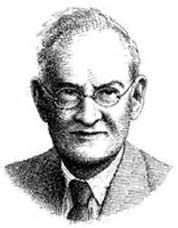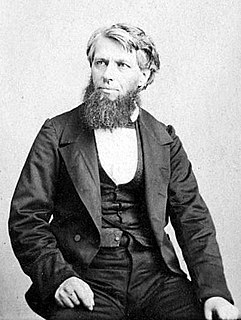A Quote by John Galt
Justice is the recognition of the fact that you cannot fake the character of men as you cannot fake the character of nature, that you must judge all men as conscientiously as you judge inanimate objects, with the same respect for truth, with the same incorruptible vision, by as pure and as rational a process of identification-that every man must be judged for what he is and treated accordingly.
Related Quotes
In handling men, there are three feelings that a man must not possess-fear, dislike and contempt. If he is afraid of men he cannot handle them. Neither can he influence them in his favor if he dislikes or scorns them. He must neither cringe nor sneer. He must have both self-respect and respect for others.
Ever judge of men by their professions. For though the bright moment of promising is but a moment, and cannot be prolonged, yet if sincere in its moment's extravagant goodness, why, trust it, and know the man by it, I say,- not by his performance; which is half the world's work, interfere as the world needs must with its accidents and circumstances: the profession was purely the man's own. I judge people by what they might be,- not are, nor will be.
You must not say that this cannot be, or that that is contrary to nature. You do not know what Nature is, or what she can do; and nobody knows; not even Sir Roderick Murchison, or Professor Huxley, or Mr. Darwin, or Professor Faraday, or Mr. Grove, or any other of the great men whom good boys are taught to respect. They are very wise men; and you must listen respectfully to all they say: but even if they should say, which I am sure they never would, 'That cannot exist. That is contrary to nature,' you must wait a little, and see; for perhaps even they may be wrong.
I have learned one thing, because I get treated very unfairly, that's what I call it, the fake media. And the fake media is not all of the media. You know some tried to say that the fake media was all the media, no. Sometimes they're fake, but the fake media is only some of the media. It bears no relationship to the truth.
All men cannot go to college, but some men must; every isolated group or nation must have its yeast, must have, for the talented few, centers of training where men are not so mystified and befuddled by the hard and necessary toil of earning a living as to have no aims higher than their bellies and no God greater than Gold.
All men cannot go to college but some men must; every isolated group or nation must have its yeast, must have for the talented few centers of training where men are not so mystified and befuddled by the hard and necessary toil of earning a living, as to have no aims higher than their bellies, and no God greater than Gold.



































